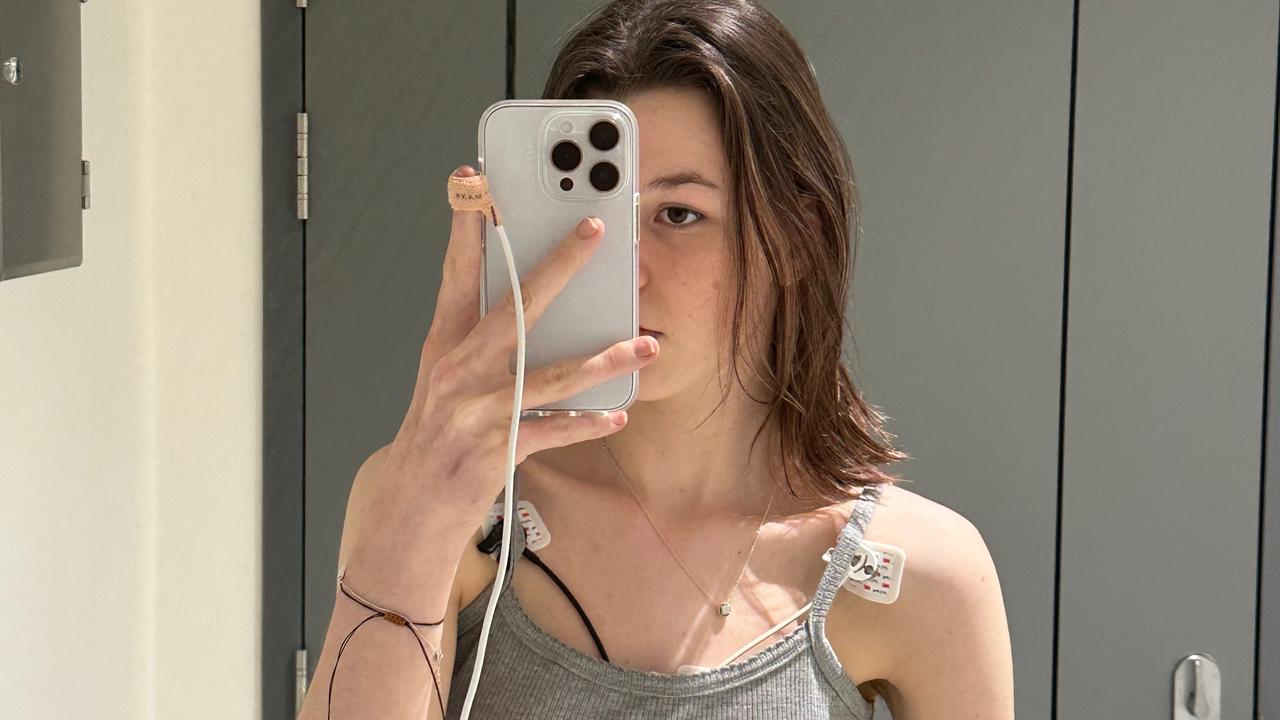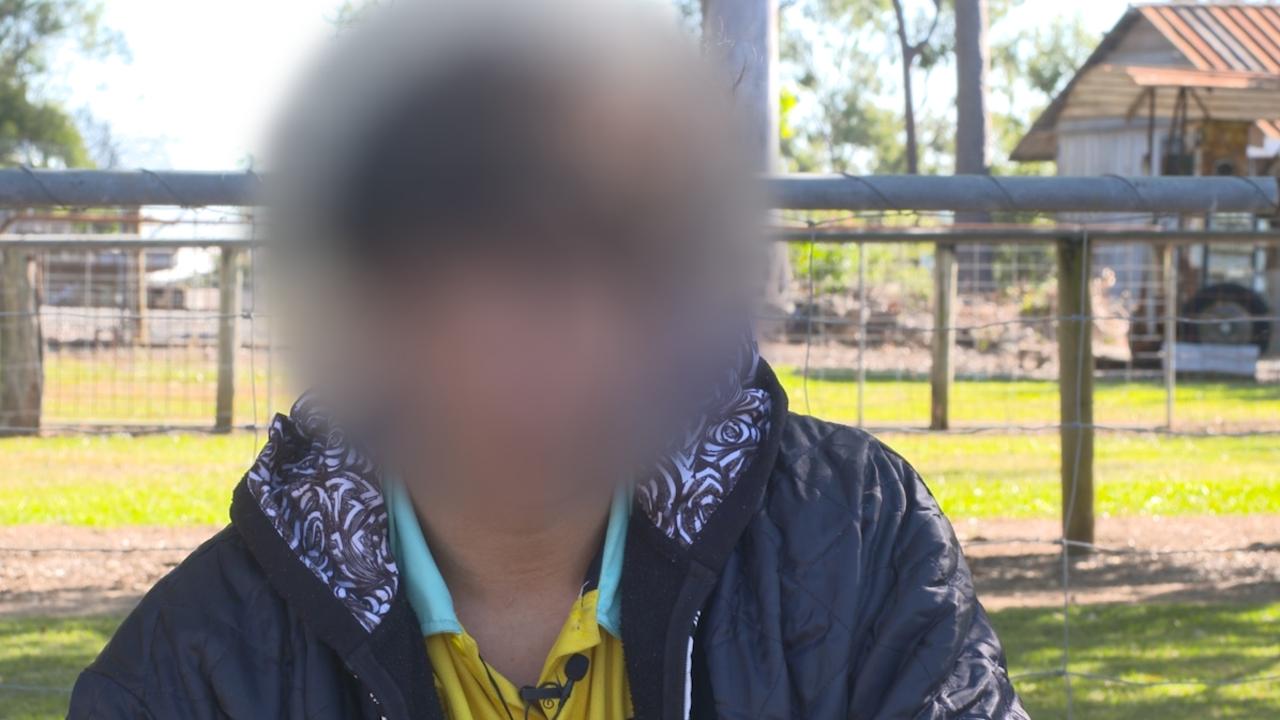Woman diagnosed with blood clots after receiving AstraZeneca vaccine says she waited hours to be treated in the RAH
Her GP diagnosed three blood clots after an AstraZeneca vaccine shot but an Adelaide woman had to wait hours for treatment at the Royal Adelaide Hospital ED.
Coronavirus
Don't miss out on the headlines from Coronavirus. Followed categories will be added to My News.
An Adelaide woman who developed blood clots after having the AstraZeneca vaccine says she spent hours waiting to be seen after she was rushed to the Royal Adelaide Hospital.
Robyn Adams, 61, said she felt ill within 24 hours of having the shot, and after getting progressively worse over the following fortnight, her GP decided to take scans in case it was linked to the vaccine.
“My GP phoned me at home that same night and said go straight to the ED because the scan showed three blood clots,” Mrs Adams said.
“He wrote up the notes about the symptoms and that I had the vaccine and sent it to the RAH.”
However, on arrival at the RAH at 8.10pm on May 5, there were 23 people in the waiting room so Mrs Adams and her husband Jerry joined a line with eight people ahead of them to see the reception nurse.

“At check-in I presented a 21-page report from the GP and the scan diagnostician confirming and detailing the location of the three blood clots in my wife’s abdomen,” Mr Adams said.
“We were told it would take ‘hours’ before anyone would look at us.
“I really thought that with blood clots and a possible link to the vaccine there would have been more interest.”
More than three hours later a doctor took the notes provided by the GP which the couple had brought in, but it was another two hours before they were told Mrs Adams would need to stay in overnight and be put on blood thinning medication.
She was finally moved to a room just before 5am, more than eight hours after arriving — Mrs Adams said during the wait in the ED she was not given a pillow, and instead used her coat wrapped in a towel.
She remains on blood thinning medication and is still waiting on test results to see if the clots are linked to the vaccine.
The Central Adelaide Local Health Network has apologised for the delay in treatment and disrress caused, while Premier Steven Marhsall told Parliament: “I would like to apologise to this patient and her family. It was an unacceptable delay and I’m sure it would have been very distressing to the family.”
SA Health chief public health officer Professor Nicola Spurrier told advertiser.com.au: “We’re not aware of any individual with confirmed thrombosis thrombocytopenia syndrome in South Australia after receiving the AstraZeneca COVID-19 vaccine.
“To assist the Therapeutic Goods Administration ongoing monitoring of the safety and effectiveness of the COVID-19 vaccine, we report each adverse event to them for their review.
“The most frequently reported suspected side effects associated with COVID-19 vaccines continue to be events commonly experienced with vaccines generally, including headache, muscle and joint pain, fever and pain at the site of injection.”
Prime Minister Scott Morrison last month announced people aged under 50 would be prioritised for the Pfizer jab, instead of AstraZeneca, because of the potential links to blood clots — Mrs Adams is not in this age group.
According to SA Health, the blood clotting syndrome linked to the AstraZeneca jab is “extremely rare”, affecting an estimated four to six people for every million who receive the first dose of the vaccine, and the AstraZeneca vaccine is recommended to be given to people aged 50 years and over.
Mr Adams has written to the RAH chief executive Lesley Dwyer and Health and Wellbeing Minister Stephen Wade outlining the couple’s concerns, noting it was not an “isolated incident of two people who were unlucky”.
“I have read about the problems at the RAH, however I assumed this was a case of media exaggeration,” his letter states.
“Now it is clear that the situation is quite possibly worse than reported. The public of SA and Adelaide deserve much better than this.
“Like all people, my wife and I hope not to have to visit any hospital at any time. Now we are positively frightened by the prospect. Frankly, our experience at the RAH was a disgrace.”
The letter notes that on arrival at the ED: “We stood in line for an excruciating 25 minutes. My wife was nauseous and suffering stomach cramps; the person ahead of us in line was having an asthmatic attack and experiencing trouble breathing; the person who joined the line behind us had blood dripping out of one eye.
“All emergency patients in the line were being checked in by a single nurse. Somehow, this did not seem like an appropriate ‘emergency’ procedure.”
The incident comes as metropolitan hospitals face consecutive months of record ambulance ramping, and emergency departments going to Code White where they are treating more people than their capacity.
The government hopes to ease the gridlock with a 65 per cent boost in treatment spaces across metropolitan and peri-urban emergency departments including increasing Flinders Medical Centre’s treatment spaces by 30 to 86 spaces, Lyell McEwin Hospital’s from 39 to 72 and adding 15 at the Queen Elizabeth Hospital.
A Central Adelaide Local Health Service statement says: “We sincerely apologise for the delay in treatment and we understand this would have been distressing to both the patient and her family.
“The patient has been clinically assessed and received treatment which has included being seen by a clinician in our specialist vaccination clinic to offer further consultation and advice. “This consultation and advice will continue to be provided for as long as is needed.
There have been no reports of thrombosis with thrombocytopenia syndrome related to the AstraZeneca vaccine in South Australia.
CALHN reports all adverse events following immunisation to the Therapeutic Goods Administration.





